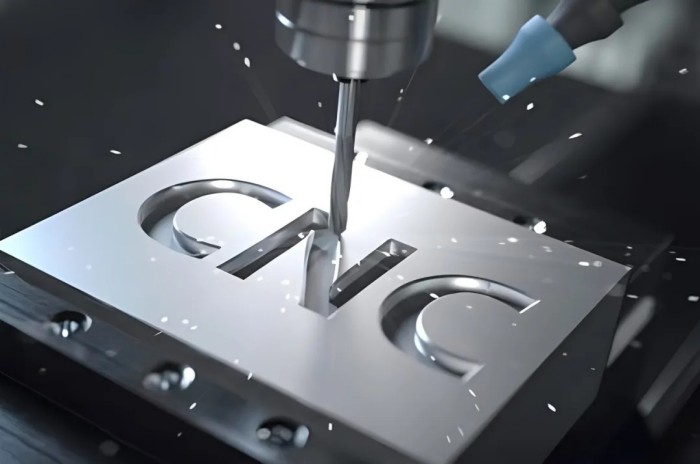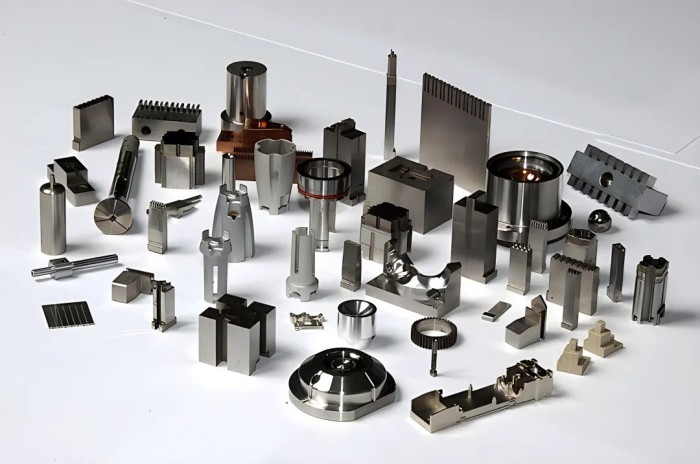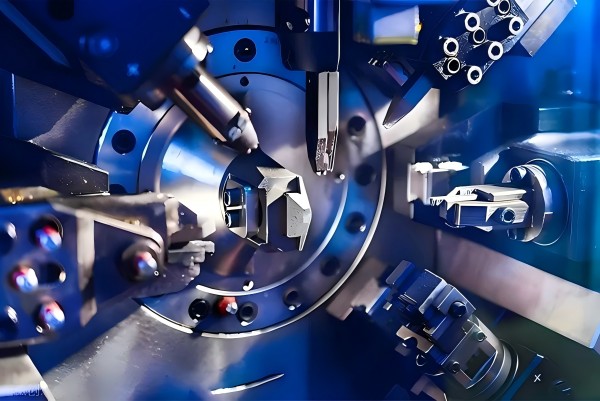- Nov 19, 2024
In today’s fast-paced manufacturing world, creating precise and functional prototypes is essential to product development. A CNC machining prototypes factory plays a crucial role in turning complex designs into reality by utilizing advanced machining technologies and expertise. But how exactly do these factories handle intricate and complex designs? Let’s dive into the process and explore the key factors that allow a CNC machining prototypes factory to deliver high-quality and precise results.
1. Advanced CNC Technology
At the heart of any CNC machining prototypes factory is the use of state-of-the-art Computer Numerical Control (CNC) machines. These machines are programmed with 3D design data to automatically carry out precise cuts, drilling, milling, and turning operations. Modern CNC machines can handle complex geometries with ease, making them ideal for producing detailed prototypes that would be difficult or impossible to create with traditional methods.
When a design is particularly intricate, CNC machines can be configured with multiple axes (such as 5-axis or even 6-axis CNC machines), allowing for more flexibility in machining under varying angles and dimensions. This advanced technology ensures that the prototype reflects every minute detail of the original design, ensuring high accuracy and functionality.
2. Skilled Operators and Engineers
A CNC machining prototypes factory doesn't rely solely on machines to handle complex designs; skilled operators and engineers are essential to the process. These professionals interpret CAD (Computer-Aided Design) files and make necessary adjustments to ensure the machining process runs smoothly. They also monitor the machining process to ensure that the designs are being followed precisely, and any issues are identified and corrected early. When dealing with complex prototypes, these experts use their knowledge to solve challenges that may arise, such as accommodating tight tolerances, unusual material properties, or multi-part assemblies. Their expertise ensures that every design specification is met and that the prototype is ready for testing or production.
3. Material Selection and Handling
The material chosen for the prototype is another critical factor in how a CNC machining prototypes factoryhttps://www.oakonworks.com/product-development-prototype/ handles complex designs. Different materials behave differently during machining, so selecting the right one for the design is crucial. High-performance metals, plastics, composites, and other specialized materials can all be machined using CNC technology. A reputable CNC machining prototypes manufacturing factory, like Oakon, has the experience to work with a wide range of materials and understands how to handle them to ensure a high-quality finish. For example, while soft plastics may be easy to machine, harder materials like titanium or stainless steel may require specialized tools or cutting techniques. The factory ensures that the material selection aligns with the desired performance and durability of the final prototype.

4. Iterative Prototyping and Adjustments
When it comes to complex designs, prototypes often need to go through multiple iterations to fine-tune the design and functionality. A CNC machining prototypes factory can quickly adjust the design and remake prototypes using the same machines, making it ideal for rapid prototyping. Changes to the prototype can be incorporated seamlessly, with each new version being a refinement of the last.
This iterative process ensures that complex prototypes are not only made to design but also tested for functionality, strength, and ease of use. It’s common for CNC machining prototypes to undergo testing before final approval, and adjustments are made as necessary to meet the design’s requirements.
5. Precision and Tolerances
Complex designs often come with very tight tolerances, meaning the prototype must be made with extremely high precision. CNC machining is highly accurate, with the ability to achieve tolerances as tight as 0.001 inches or even smaller, depending on the machine and material. This precision is crucial for industries where the smallest deviation can lead to product failure, such as aerospace, medical devices, and automotive sectors.
A CNC machining prototypes factory like Oakon ensures that every part of the prototype meets the required tolerances and specifications. Their quality control processes include detailed measurements, inspections, and testing to verify that the final prototype meets all design standards.

6. Post-Processing and Finishing
After the machining process, the prototype may require additional post-processing to achieve the final desired finish. This can include operations such as sanding, polishing, coating, or even assembly if the prototype consists of multiple parts. The CNC machining prototypes manufacturing factory works with the client to ensure that the final finish not only meets the design aesthetic but also provides the necessary functionality.
Conclusion:
Handling complex designs in a CNC machining prototypes factory requires a combination of advanced technology, skilled operators, material expertise, and precise machining processes. Whether the prototype involves intricate geometries, tight tolerances, or requires special post-processing, CNC machining offers the flexibility and accuracy needed to bring even the most complicated designs to life. Companies like Oakon are experts in CNC machining and can handle custom projects, offering rapid prototyping services for industries requiring precision and innovation.
FAQ:
1. What is CNC prototyping?
CNC prototyping refers to the process of creating a physical model of a design using CNC machines. It allows for rapid production and testing of prototypes before moving into mass production.
2. How does a CNC machining prototypes factory handle custom parts?
A CNC machining prototypes factory handles custom parts by using advanced CNC machines to create parts according to specific customer designs. Skilled engineers and operators ensure that every design specification is met with high precision.
3. What materials can be used in CNC machining prototypes?
Common materials for CNC machining prototypes include metals such as aluminum, steel, and titanium, as well as plastics like ABS, PVC, and polycarbonate. Specialized materials like composites can also be used depending on the design requirements.
4. Why choose Oakon for CNC machining prototypes?
Oakon is known for its high-quality CNC machining prototypes manufacturing. With expertise in a wide range of materials and advanced CNC technology, Oakon ensures precision, efficiency, and rapid prototyping to meet the needs of diverse industries.
5. How fast can a CNC machining prototypes factory produce a prototype?
The timeline depends on the complexity of the design and the material used. However, a CNC machining prototypes factory can typically deliver prototypes within days or weeks, making it ideal for quick iterations in product development.


